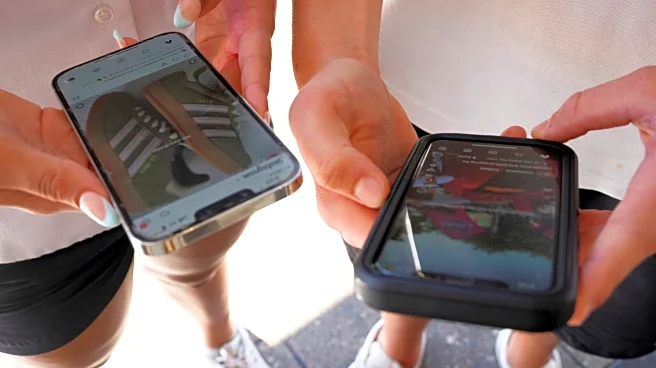Rapid Read • 8 min read
Retailers such as Adidas, ASOS, and Macy’s are increasingly adopting augmented reality (AR) technology to offer virtual fitting rooms, allowing customers to try on clothes digitally before purchasing. This technology, which overlays digital clothing onto live video or photos, is being used by fashion platforms like Zalando and Net-a-Porter, as well as luxury brands such as Fendi, Burberry, Prada, and Gucci. AR try-on technology is designed to replicate the in-store shopping experience online, providing customers with the ability to try on clothes at their convenience. This innovation is reported to increase online sales by nearly 20% and reduce return rates by up to 64%, according to AR clothing try-on company Perfitly.
AD
The integration of AR technology in retail is significant as it addresses several challenges faced by the industry, including high return rates and the need for enhanced customer engagement. By allowing customers to virtually try on products, retailers can reduce the likelihood of returns, which is beneficial for both the business and the environment. Additionally, AR technology offers a personalized shopping experience, helping retailers build stronger relationships with customers and differentiate themselves in a competitive market. This technological advancement not only boosts sales but also enhances customer satisfaction by providing a more interactive and engaging shopping experience.
As AR technology continues to evolve, retailers are likely to further integrate these tools into their online and offline shopping experiences. The development of more sophisticated AR applications could lead to even greater personalization and convenience for consumers. Retailers may also explore partnerships with technology companies to enhance the quality and accessibility of AR experiences. As the technology becomes more widespread, it could set new standards for customer expectations in the retail industry, prompting more brands to adopt similar innovations.
The adoption of AR technology in retail also raises questions about data privacy and security, as these systems often rely on collecting and analyzing customer data to provide personalized experiences. Retailers will need to ensure that they are transparent about data usage and have robust security measures in place to protect consumer information. Additionally, the shift towards digital try-ons may impact traditional retail jobs, as fewer in-store staff may be needed to assist customers with fitting and styling.
AD
More Stories You Might Enjoy













